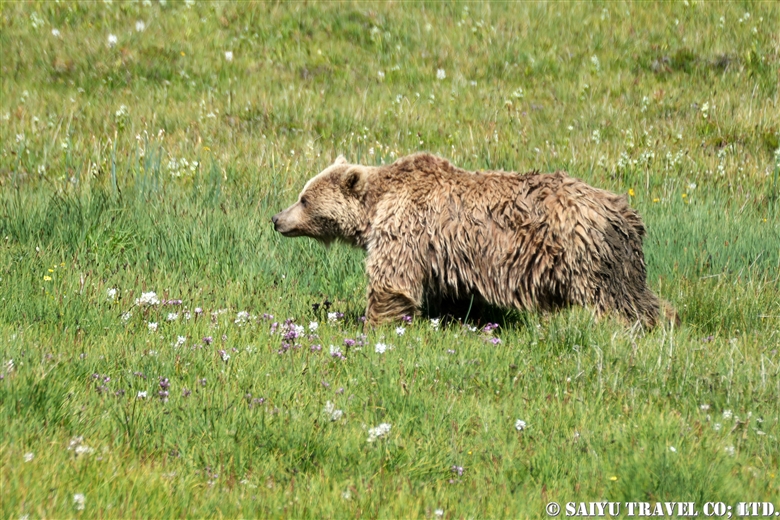
In the summer of 2022, finding Himalayan brown bears to observe was quite a struggle. The National Park Staff and I, searched, and wondered why they weren’t in the places we usually see them.
The first reason that came to my mind was the “increasing number of tourists.” but it’s not something that has happened just in this one year. Second, the nomadic people came to the Deosai Plateau brought their livestock into the brown bear area. Definitely, their presence has a certain impact. However, we could not even find the bears in the core zones…so I suppose the main reason for the lack of bears might be the ‘dryness’ due to the exceptionally low amount of snowfall this winter. The grasses, which are the favorite food of the bears, has not grown in the usual areas, so the National Park staff are guessing that the bears have moved to different areas in search of better food sources.
Unfortunately, there is very little research that has been done on the Himalayan brown bears. To be honest, even the published population estimates are not very accurate.
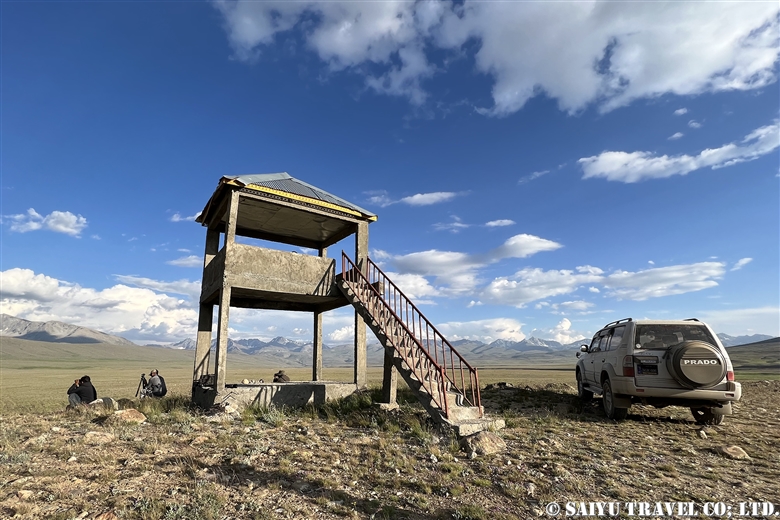
The easiest place to see bears is the “Watching Point” which is just behind the Barapani National Park Station. If you have any luck, you will get to see a mother and cubs feeding on the hill nearby. However due to the distance, make sure to bring good binoculars or have a scope with you.

This time, during our visit, we could walk to 4 different areas in search of the bears. While walking, we could see Nanga Parbat (8,126m), the 9th tallest peak in the world, from various places around the Deosai Plateau.
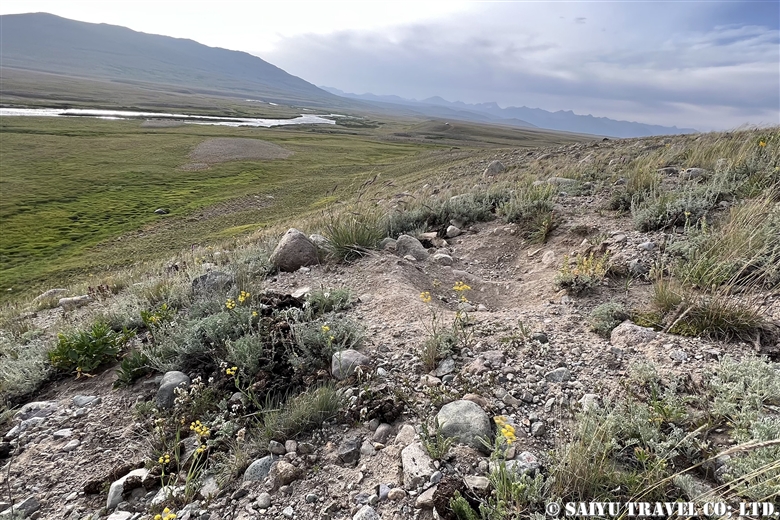
This is a temporary hollow used by the brown bears to sleep. There are two indentions, one big one and one small one. Looks like it was used by a mother and her cub.
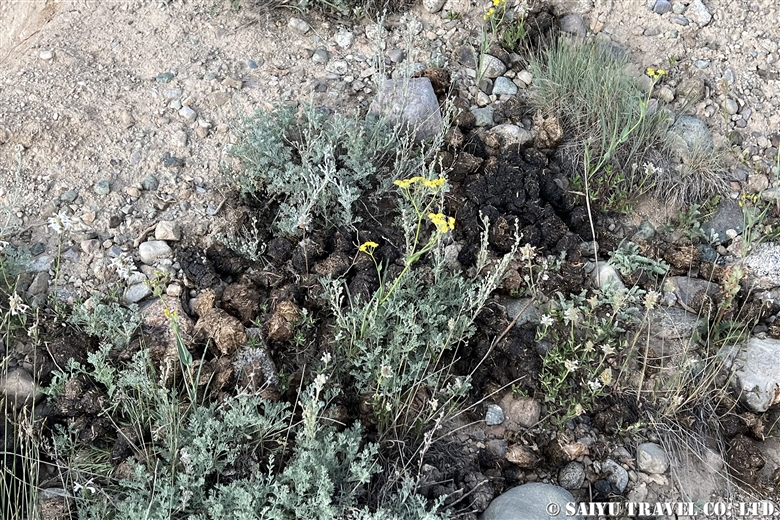
We also found lots of feces, large piles (mother bear) and smaller ones (cub). However, according to the national park staff, the newest one was already 3-4 days old and we didn’t find any fresh droppings. So most likely, the mother and cub has moved on to a new place already.
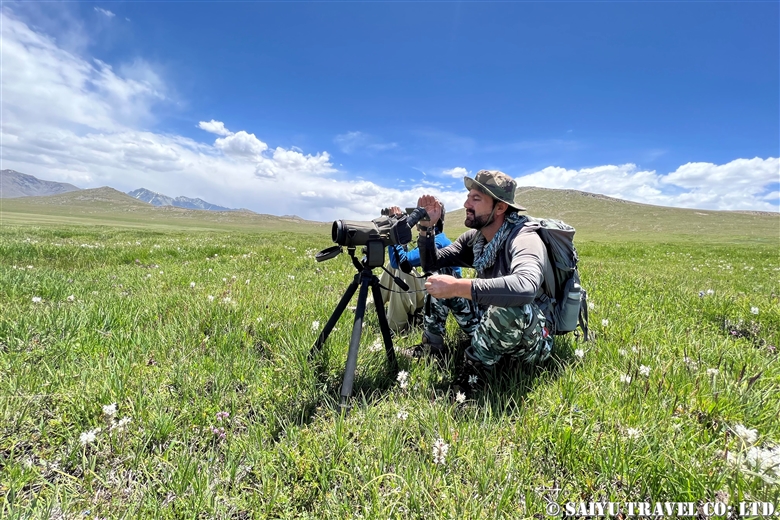
We scanned the core zone. Finally, we happened upon a Himalayan brown bear.

It was a very young bear!

It must have smelled us, so it stood up and started looking around for us.

It has become aware of our presence. As soon as it confirmed our presence, it put as much distance as it could from us.

It ran across the meadow until it disappeared. It is quite a young bear, so perhaps the mother was still nearby, or maybe it had just become newly independent. I pray that this little one can grow up safely.

A different, bear, this one a large one and totally engaged in eating the grass.

It was so absorbed in eating, that it hardly looked up at all. While eating, we moved closer and we gradually closed the distance. The wind direction was right, taking our smell away from the bear, and it was our chance.
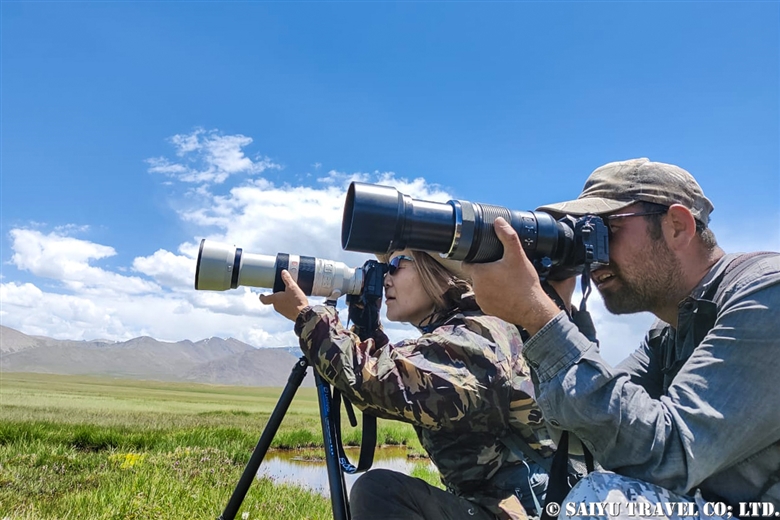
We got lots of photographs.

The bear never realized we were there, and just kept eating. Surrounded by the alpine plants, I was able to enjoy the sights of a bear preying on insects in the grass, observing the natural behavior.
I have tried observing the brown bears several times before, but this time compared to in the past, we had a hard time finding them and had to walk long distances. The impact of the extreme weather on the Deosai Plateau and the effect it has on the brown bear was quite terrifying.
The Deosai Plateau, which is usually covered in lush greenery and alpine flowers, but this summer was so dry. The scene of so many tourist cars driving through the Plateau and the clouds of dust behind the vehicles made me fearful that one day, Deosai could turn into a desert.
Image & Text : Mariko SAWADA
Observation : JUL 2022, Deosai National park, Gilgit-Baltistan
Visit our web site “Wildlife of Pakistan”
YouTube : Himalayan Brown Bear in Autumn
Category : ◆ Gilgit-Baltistan > - Himalayan Brown Bear > - Deosai National ParkTag : Pakistan tour operator , Himalayan Brown Bear , Pakistan Photography Tour , Pakistan Blog , Wildlife photography tour Pakistan , Pakistan Travel Blog , Brown Bear , Save wildlife in Pakistan , Wildlife of Pakistan , Indus Caravan , Bear watching , Deosai National Park , Deosai Plateau , Pakistan Travel company , Gilgit-Baltistan






